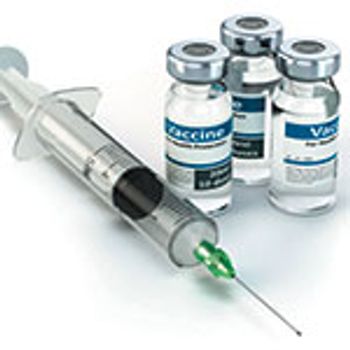
It is good industry practice to clarify the precise remit for each of the reviewers of a controlled document, says Siegfried Schmitt, PhD, vice-president, technical, Parexel Consulting.

It is good industry practice to clarify the precise remit for each of the reviewers of a controlled document, says Siegfried Schmitt, PhD, vice-president, technical, Parexel Consulting.

Manufacturing differences between traditional mAb therapies and newer biotherapeutics dictate whether processes should be scaled up, scaled out, or use an alternate approach for commercial production.

The use of scale-down models allows for the theoretical optimization of processes and for troubleshooting problems during the developmental stage.

FDA report says drug shortages are underappreciated and patients pay a price.

Developing an effective bioassay is crucial for determining the potency of a drug substance or finished drug product. This article gives an overview of how to avoid most problems associated with correct bioassay development.

A recent report released by an FDA task force highlights the financial, manufacturing, and policy issues underlying the drug shortages of important prescription medicines in the United States.

The agency’s implementation of the SUPPORT Act has included new guidance documents and actions to restrict illicit drugs entering the US.

CHMP has recommended that Ervebo (rVSVΔG-ZEBOV-GP), a vaccine for active immunization against Ebola, be granted conditional marketing authorization in the EU.

The agency announced it has approved 1171 generic drugs in fiscal year 2019.

The guidance document discusses the preparation and submitting of drug master files as well as FDA’s review process.

The guidance discuses waivers, refunds, and reductions of user fees under sections 735 and 736 of the FD&C Act.

Innoveix Pharmaceuticals, Inc. is voluntarily recalling all sterile compounded drug products due to a lack of assurance of sterility.

The guidance describes an optional streamlined submission process for use of an investigational in vitro diagnostic in a clinical trial for oncology therapies.

AstraZeneca received approval from FDA for Fasenra Pen, a pre-fillled auto-injector pen that allows for self-administration of its asthma biologic therapy, Fasenra (benralizumab).

In an Oct. 10, 2019 press release, ChargePoint Technology announced that its smart monitoring system, Verifi, is now available for the biopharma market.

Climbing out of a reputation hole can start with adopting a quality culture.

Falsified documents and manipulated test results prompt warnings and investigations.

Data supporting the quality and safety of product must meet the ALCOA+ elements in order to avoid regulatory citations for data integrity issues, says Susan J. Schniepp, executive vice-president of post-approval pharma and distinguished fellow, Regulatory Compliance Associates.

The authors provide an introduction to aluminum adsorbed vaccines, review studies of antigen stability, and propose test methods for the analysis of aluminum vaccine release and stability analysis.

Software systems can help validate pharmaceutical manufacturing and steer the most appropriate design of processes in the right direction.

A guide for improving the planning and preparation of future validation work.

After months of planning and explaining, Janet Woodcock, director of the Center for Drug Evaluation and Research (CDER), finally gained approval for broad changes in its process and procedures for evaluating and approving new drugs.

A new educational platform by Quality Executive Partners offers on-demand digital courses with technical content, virtual reality, and real-time coaching with an initial focus on sterile product manufacturing and microbiology.

FDA has approved Novo Nordisk’s Rybelsus (semaglutide), a glucagon-like peptide receptor protein treatment in oral tablet form for type 2 diabetes.

The Committee for Medicinal Products for Human Use of the European Medicines Agency has granted a positive opinion recommending marketing authorization for Bavencio (avelumab) in combination with axitinib for treating kidney cancer.